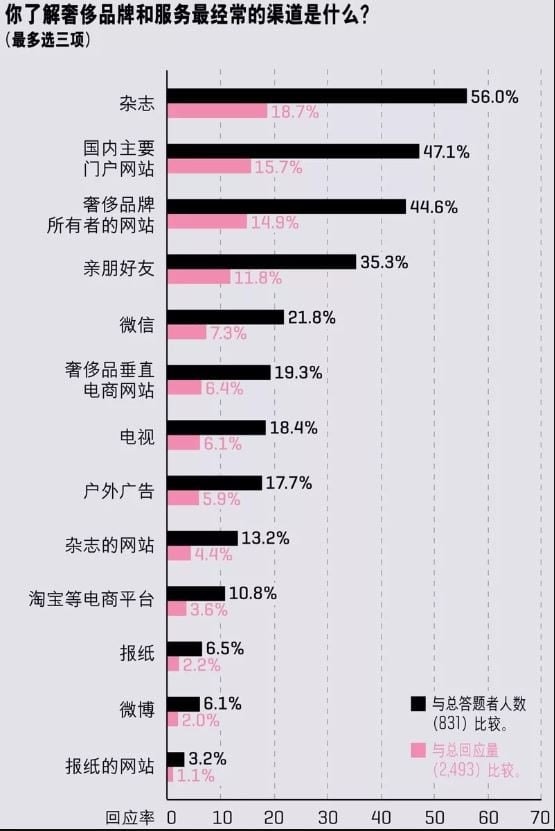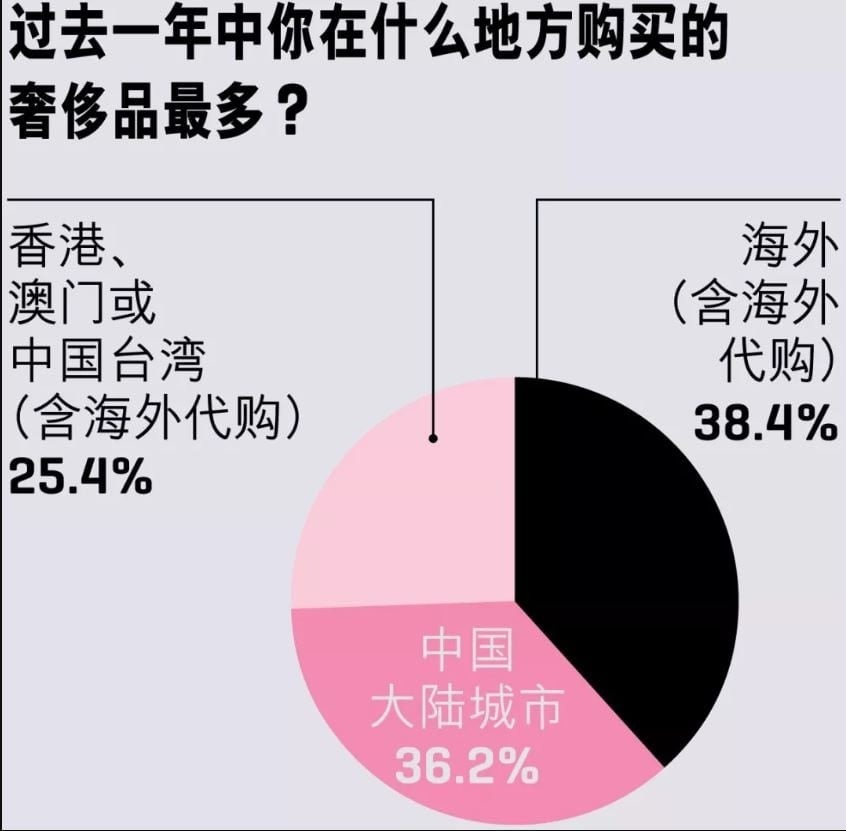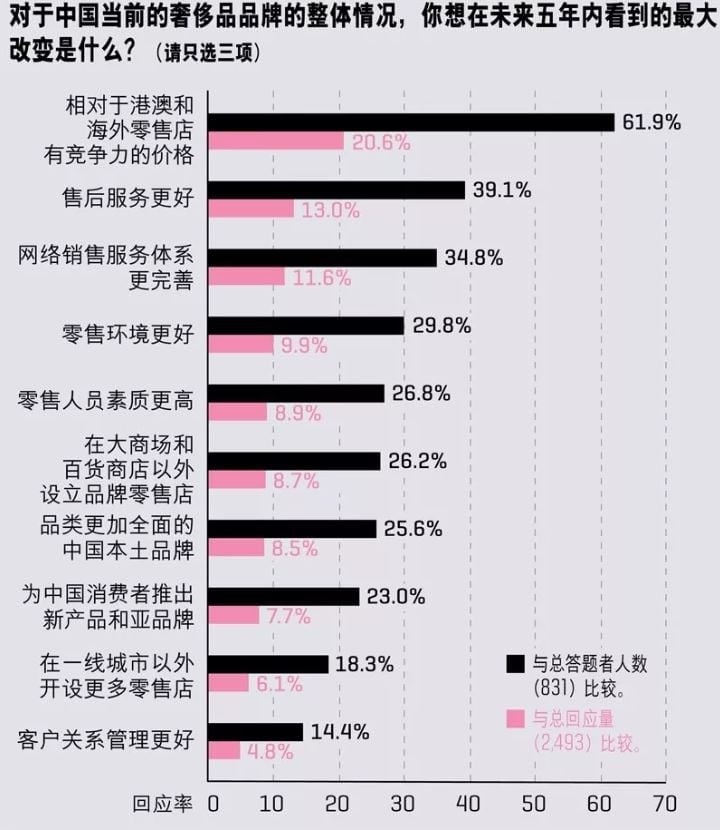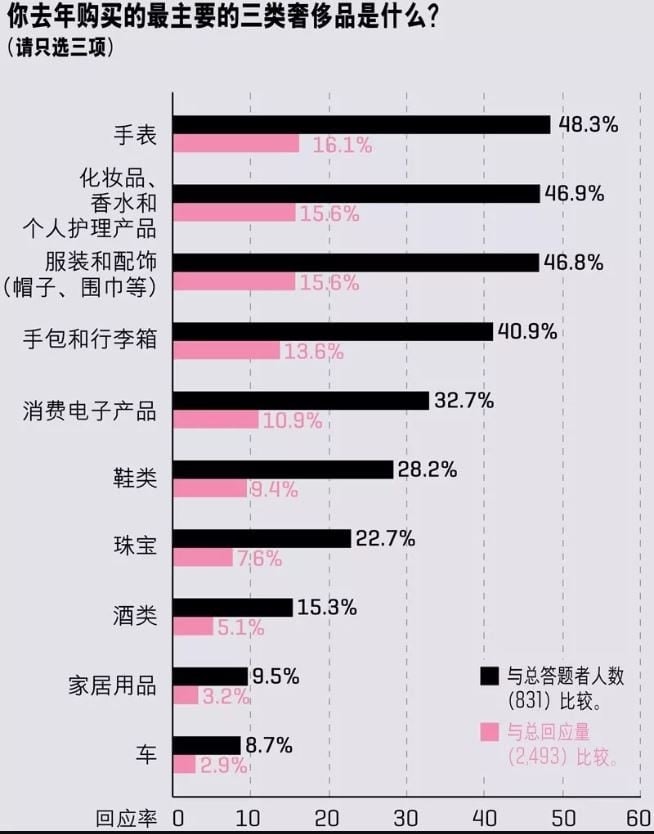According to a new report released by Chinese media outlet Fortune, marketing on WeChat for luxury brands could be a bust for the country's highest earners. A survey was sent to 32,900 consumers working in senior executive roles in China, with 831 of them submitting responses - and most don't use WeChat to keep track of luxury brands.

When asked where they would usually read about luxury brands and their offerings, magazines surprisingly topped the list of options for respondents - ahead of WeChat, Weibo, and e-commerce sites.
For this high-earning demographic, 56 percent of respondents regularly use magazines as a way of receiving information on luxury brands, followed by 47.1 percent using major media outlets, 44.6 percent going straight to a brands’ website, and 35.3 percent taking information from family and friends. Only 21.8 percent of those surveyed followed luxury information accounts on WeChat, and a measly 6.1 percent used Weibo for luxury.

Additionally, traveling and shopping has become increasingly separate for the country's upper-middle class, according to the report. Approximately 62 percent of those surveyed indicated they purchased most of their luxury goods in China in 2017 (including Hong Kong SAR and Macau), up from 55 percent the year before. Only 38 percent of participants bought luxury items when traveling abroad during the same period, a figure that decreased around six percent from the year before.
Not too long ago, Chinese luxury consumers were known to flock to international fashion capitals like Milan, Paris, New York, and London to purchase luxury products. This was in part due to the huge retail price difference between the mainland and overseas market, as well as a fear of buying fake items at home. These two factors continue to have a part to play for survey respondents who prefer to buy abroad, but the impact has lessened greatly over time.
The rise of the domestic luxury market in China is poised to further disrupt traditional buying habits. To respond, many brands and retailers have taken an “all-in” approach - building up a complete online-to-offline retail infrastructure, and designing new collections exclusively for the Chinese market.

The Fortune survey also asked respondents to choose which things they hope luxury brands in China will improve upon over the next five years. 61.9 percent said they wanted to see a more competitive retail price point in mainland China, compared to that of the rest of the world. A good post-sales service is also called for, along with a complete online sales channel and emotionally intelligent salespeople.

For this high-earning segment, the Fortune survey also uncovers that watches, cosmetics & fragrance, and apparel were the top three luxury categories purchased last year. The report notes that the cosmetics and fragrance category replaced the handbags category for the first time, to place in the second position. Handbags, which is traditionally a popular category, dropped to fourth. This rising appetite for cosmetics and fragrance products among affluent consumers could determine the product strategy for luxury brands in China.
